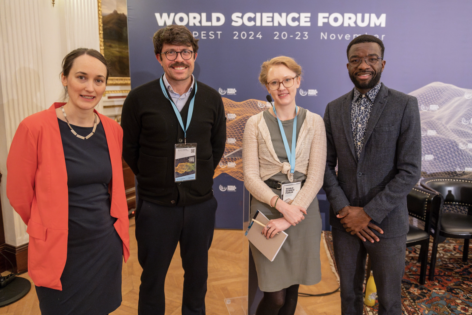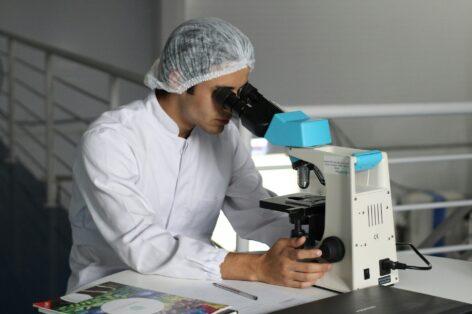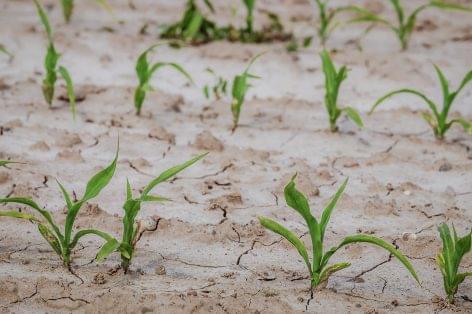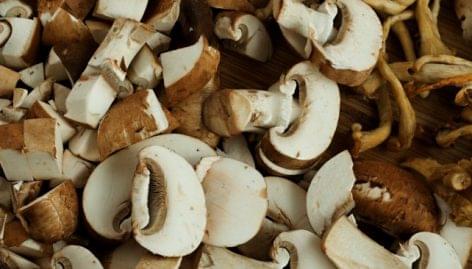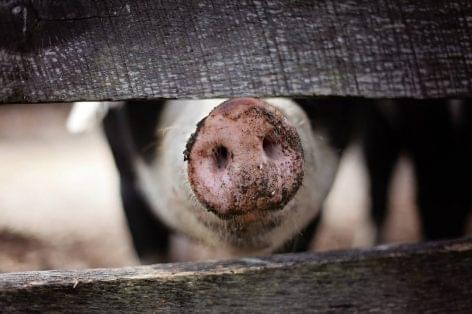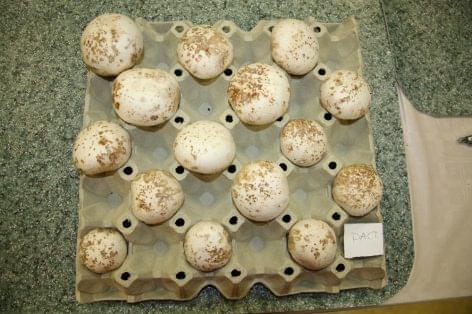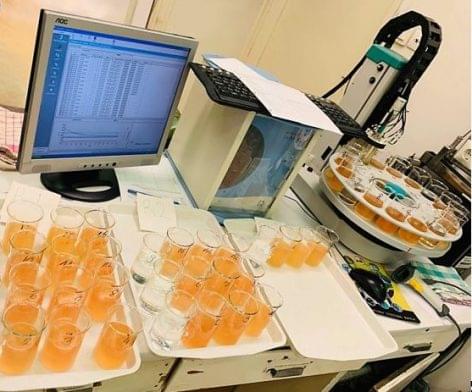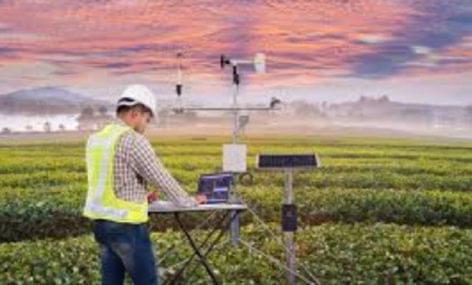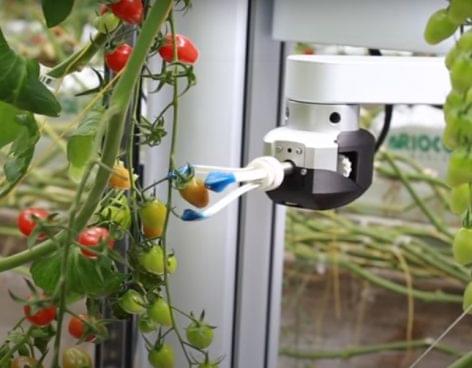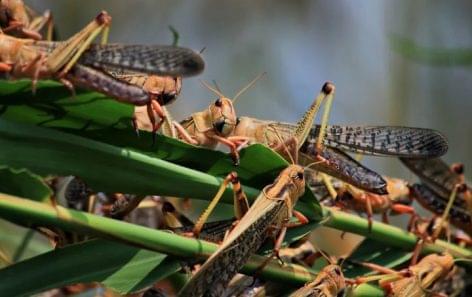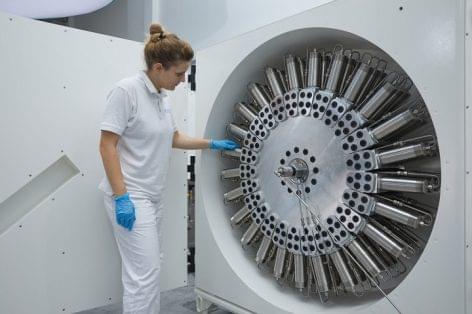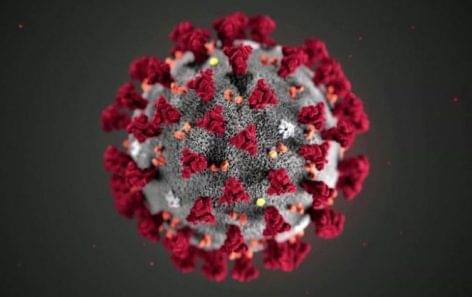Tag "tudomány"
Research: Kis-Balaton filters some of the pharmaceutical residues in front of Lake Balaton
Date: 2026-01-16 10:34:37
Four domestic research institutes (HUN-REN Balaton Limnological Research Institute, University of Pannonia – Ernő Soós KFK, MATE, NKE) analyzed in a one-year study the ability of the Kis-Balaton Water Protection...
Read more
The World Science Forum starts in Budapest today
Date: 2024-11-21 11:01:56
The World Science Forum (WSF) begins today in Budapest, with the theme this year being the relationship between science and policy in times of global transformation. The forum, which has...
Read more
There is already lab meat that is just like the real thing
Date: 2024-07-10 10:59:54
South Korean researchers have developed a pioneering method for the production of artificial meat, which tastes close to meat of animal origin. According to a CNN report, the technology developed...
Read more
Science is rewritten by AI
Date: 2024-04-16 08:49:58
Artificial intelligence (AI) appeared in Hungarian healthcare in the last decade. Despite the fact that patients and professionals still sometimes fear its use, its use is growing exponentially. We can...
Read more
The Geo Terroir research group was established to help the development of domestic agriculture, food industry and tourism
Date: 2024-03-06 08:20:48
The Geo Terroir research group, which helps the development of domestic agriculture, food industry and tourism, was established at the University of Szeged with the cooperation of specialists from several...
Read more
SZTE researchers have developed a procedure for measuring and predicting drought
Date: 2022-07-19 09:20:47
Researchers of the Department of Geoinformatics, Natural and Environmental Geography of the University of Szeged (SZTE) have developed a nationally used procedure for measuring and forecasting drought – the public...
Read more
Fish-free seafood made from fungi and seaweed: scientists and Michelin-starred chef to develop product good enough for fine dining
Date: 2022-06-24 10:56:46
A team of scientist from the Technical University of Denmark is collaborating with Diego Prado, head of research at Copenhagen’s two Michelin-starred restaurant Alchemist, to develop sustainable alt seafood through...
Read more
Satellite-based development is underway to mitigate drought damage
Date: 2022-05-17 11:17:25
The consortium formed by Combit Számítástechnikai Zrt., the University of Óbuda and the Széchenyi István University won 756.55 million HUF in European Union support for the development of a satellite...
Read more
The epidemic has made us more confident in science
Date: 2022-04-13 08:51:13
According to a comprehensive international survey, the proportion of people sceptical about science has decreased significantly in the past year, with 88% of people considered pro-vaccination. However, Europeans are less...
Read more
Short messages on menus lead more people to choose plant-based food
Date: 2022-01-26 10:27:27
Simple, short messages on restaurant menus make guests choose a plant-based dish over meat twice as often, according to new research. Climate scientists are paying increasing attention to the production,...
Read more
Biomarkers of powdery mildew infection in wheat have been identified by ATK researchers
Date: 2021-08-25 11:20:42
The first reliable biomarkers of powdery mildew infection in wheat were identified by the research group of the Eötvös Loránd Research Network (ELKH) Agricultural Science Research Center (ATK). In their...
Read more
Based on the results of Hungarian researchers, mushroom growing can be made safe
Date: 2021-07-07 11:20:35
In accordance with food safety regulations, the cultivation of edible mushrooms can be mycotoxin-free thanks to the results of a research and development project implemented from the professional leadership of...
Read more
A genetic mechanism can protect a person from excessive coffee consumption
Date: 2021-04-28 11:22:06
A protective genetic mechanism can protect a person from excessive coffee consumption, researchers at the University of South Australia have found that coffee consumption patterns reveal a state of heart...
Read more
Genetic engineering against swine flu
Date: 2021-03-17 11:22:54
Genetic engineering technologies could help prevent the spread of swine flu in pig farms and also reduce the risk of epidemics, British researchers say. According to scientists at the Roslin...
Read more
New fertilizer in Israel could be the solution of the future
Date: 2021-03-04 11:05:18
An Israeli company would produce an odorless, safely stored and usable fertilizer from animal feces – agrarszektor.hu wrote. The procedure, developed by Paulee CleanTec, was originally intended to get rid...
Read more
New developments can help plant growers combat climate change
Date: 2021-02-22 11:18:04
Swedish scientists would monitor the sugar levels of plants in real time. Researchers at Linköping University have developed biosensors that can measure sugar levels in real time in plant tissues....
Read more
The robot dog is visiting Hungary
Date: 2021-02-12 11:12:27
Alza.hu is the first to bring the development of Boston Dynamics, Spot, the robot dog, to Hungary. Alza’s commitment to innovation, robotics, cybernetics and artificial intelligence has been unshakable since...
Read more
A new method can speed up the identification of crop defects caused by fungal infections
Date: 2021-01-21 11:19:30
Due to the growing importance of food safety and increasingly stringent consumer expectations, increasingly modern technological procedures are also helping to control food quality. Double-spore mushroom samples showing symptoms of...
Read more
Researchers at Szent István University are working to filter out counterfeit tomato concentrates
Date: 2020-11-17 11:21:16
There have been a number of reports in the press and that in-store tomato products have been “conjured up” by some producers through food counterfeiting to make them more appealing...
Read more
A self-disinfecting face mask was developed by American researchers in sunlight
Date: 2020-11-16 11:14:20
Researchers at the University of California have developed a special cotton face mask that can kill 99.999 percent of the bacteria and viruses on it in one hour when exposed...
Read more
Americans develop automated farms
Date: 2020-09-14 11:03:03
A newly established scientific institute is looking for the answer to the question of how automated the agriculture of the future can be. The AIFARMS Institute will primarily study the...
Read more
Where robots pick tomatoes
Date: 2020-08-24 11:08:23
The pandemic catalyzed the use of robots and artificial intelligence. Digitization has been introduced in sectors where it was unimaginable – magyarmezogazdasag.hu wrote. Source: magyarmezogazdasag.hu A Boston startup, Root AI,...
Read more
Animal feed from Pakistani locusts
Date: 2020-08-07 11:08:40
Pakistan has been plagued by an increasingly severe locust invasion for years. This year’s “season” has already begun and may last until mid-September – origo wrote. Scientists are working hard...
Read more
Natural caffeine has a longer lasting effect than its artificial version
Date: 2020-07-23 11:11:41
Natural caffeine has a longer-lasting and more even effect on the thought process and mood than artificial caffeine, researchers at Clarkson University have found. The authors of a study published...
Read more
Plants also eat plastic
Date: 2020-07-14 11:10:08
According to a recent research, plastic waste not only pollutes the waters of the seas and oceans, but as it turned out, in addition to animals, plants are also able...
Read more
Coronavirus and food are what science says
Date: 2020-07-09 11:25:42
20 percent of food-borne infections are caused by viruses. Coronaviruses mainly cause respiratory diseases, but do they spread through food? What is the experience so far and what can we...
Read more
From laboratory to market, a Hungarian invention that opens a new dimension in purification
Date: 2020-07-07 11:20:11
There is a Hungarian company that, thanks to its innovative technology, is able to decontaminate food, improve the quality of whiskey, and offers cost-effective and unique cleaning procedures in countless...
Read more
Misconceptions about plant-based nutrition
Date: 2020-06-23 11:10:44
Can deficiency diseases be caused by a vegan or vegetarian meal and it is difficult to get the nutrients you need? Or have we already done enough for sustainability by...
Read more
There is no evidence to suggest that the virus would infect through food
Date: 2020-06-19 11:03:44
There is no evidence to suggest that the virus would infect through food, the Chinese Epidemiological Center said on Friday after severely infected marine animals and cod were found in...
Read more
Pollen was transported with soap bubbles to the fruit trees by Japanese scientists
Date: 2020-06-19 11:01:10
A Japanese research team has managed to fertilize pear trees with pollen transported on the surface of soap bubbles, the BBC news portal reported. Due to the global decline in...
Read more

